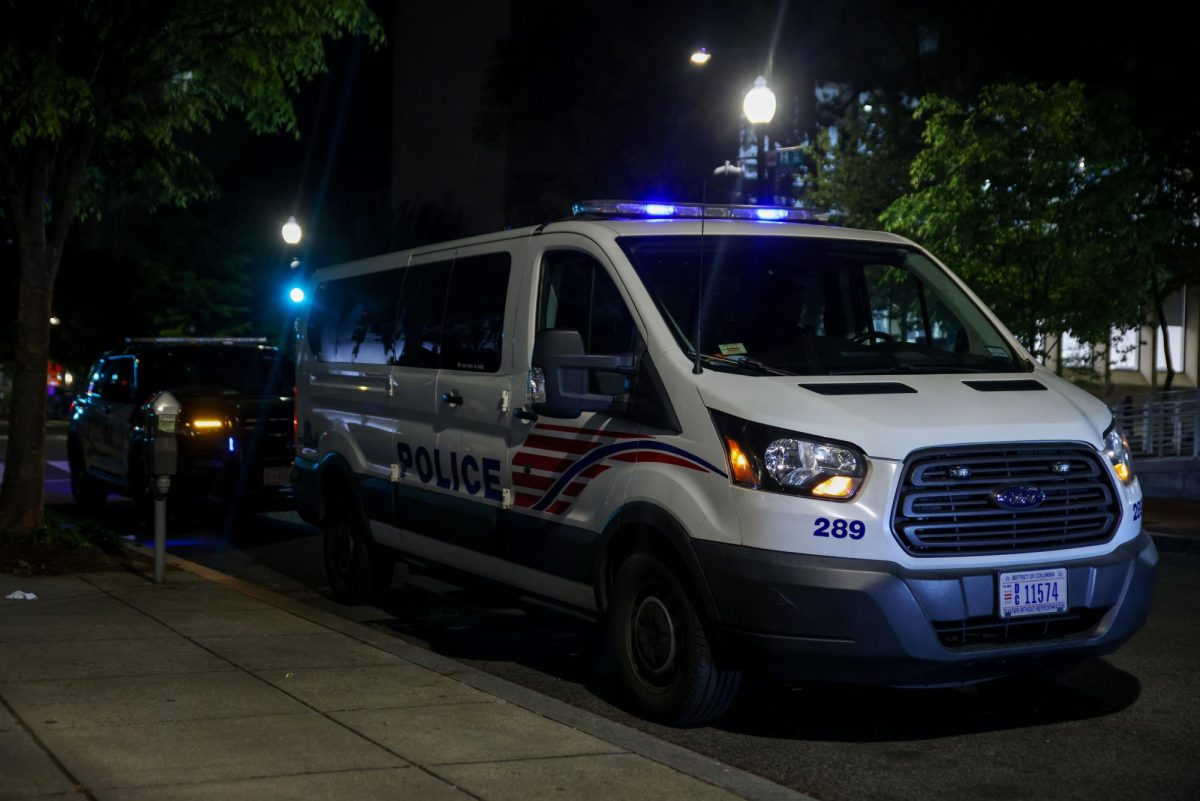The Student Association Senate overwhelmingly approved a new constitution Tuesday night, but a majority of voting students must approve the bill before the constitution is ratified.
After an hour and a half of debate, the constitution bill passed 29-2 with only Sen. Logan Dobson, CCAS-U, and Sen. Tom Fogarty, SMHS-G, opposed. According to the current constitution’s rules, a special elections committee must set a date for the student referendum within 20 class days of Tuesday’s vote.
A special elections committee will be appointed and will set the date, said Sen. Jamie Baker, CPS-G, chair of the rules committee. The 20-class-day mark falls during the first week of the spring semester.
SA President Julie Bindelglass said Wednesday she would sign the bill.
If the proposed constitution receives a simple majority of students who vote on the referendum, new sections of the constitution concerning elections and additional senate seats would go into effect immediately. All other changes will be enacted when the senate-elect is seated in April, Baker said.
The bill proposed major changes to the SA’s structure, including running presidential and executive vice presidential candidates together on the same ticket, increasing the number of student court judges from five to seven, and installing a new speaker of the senate to preside over the legislative body instead of the EVP.
“To see 29 senate votes in the affirmative means that there is resounding, almost unanimous consent, that this is exactly what we want,” Sen. Michael Komo, U-At Large, said. Komo is a member of the eight-person constitutional task force that wrote the new bylaws.
“If the students want this, they will vote in the affirmative. It’s up to the students,” Komo said.
When introducing the bill on the senate floor, Komo said that running the president and EVP on the same ticket would have them work together more effectively.
“What if Barack Obama and Sarah Palin were independently elected to the White House?” Komo said. “We want the president and the vice president to have the same message.”
Two amendments were added to the bill during the senate’s debate. One amendment proposed by Sens. Josh Goldstein, CCAS-U, and Giovanni Tomasi, ESIA-U, increased the number of freshman senators from three to four, after the original draft had eliminated them completely.
The proposed constitution includes a freshman assembly, which will be comprised of any freshmen who join. Four assembly members will be chosen to serve as “liaisons” to each of the four senate committees, and those individuals will still be called non-voting freshman senators. They will be selected internally by the assembly, a change from the current system in which the senate appoints freshmen to the seats.
Fogarty voiced his opposition to the freshman assembly and to the added amendment.
“It is unfair to add a separate assembly for the freshmen without adding separate assemblies for each class in each school or program,” Fogarty said. His attempt to propose assemblies for each class was voted down by the senate.
“The freshman senators are already uniquely represented in the senate – no other class has reserved seats on the senate,” Fogarty said.
The second amendment changed the senate speaker from being a student body-elected position to one internally approved by the senate.
Sen. Connor Walsh, U-At Large, also a task force member, proposed the amendment. Walsh called the speaker “a management position” that would be most effective if chosen by the senators they would be working with.
Dobson opposed the amendment during the debate, and said it was important to have a speaker come directly from the students and outside of the SA. He said he ultimately voted against the bill because of the “clear message” that the student body doesn’t care about internal SA politics.
“It’s also interesting that in a bill that claims it cuts down on bureaucracy, we’ve now created an entirely new [freshman] assembly, we’ve increased the number of freshman senators, and increased the number of student judges,” Dobson said. “It doesn’t fix any of the efficiency [problems].”
EVP Jason Lifton said that he was very pleased with the night’s debate.
“I think that people clearly came prepared with things they were interested in talking about,” Lifton said. “At this point it’s up to the student body, but it was clearly an overwhelming senate majority that passed it.
Bindelglass declined to take a position for or against the changes proposed, as did EVP Jason Lifton.
“It is very important to me that the student body make this decision on their own accord,” Bindelglass said in an e-mail.
The current constitution states the SA president will nominate three people to serve on a special elections committee within five class days of the Senate vote calling for the referendum, and the Senate must vote on the confirmation of the president’s candidates within a week of their nominations.
Once confirmed by a majority vote of the Senate, the special elections committee will set the date for the referendum vote within 20 class days after the certification of a petition or the Senate vote calling for the referendum.
Komo said he is confident that the referendum will pass despite the low turnout at last week’s constitution town hall.
Students have cast ballots for SA constitutional reform in the past. In January of 2006 the Student Court invalidated the proposed constitution that students had voted in favor of one month earlier. Subsequent legislation efforts to ignore the court’s ruling did not succeed, and the existing constitution remained in effect. One year later, another constitutional bill was also struck down.
More recently, a new constitution bill was tabled late last spring before a senate vote was held after charges of secrecy and exclusivity plagued the document’s writing.







